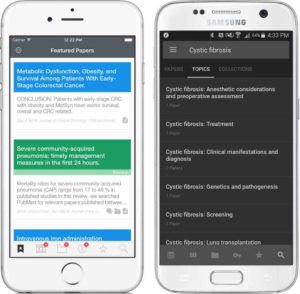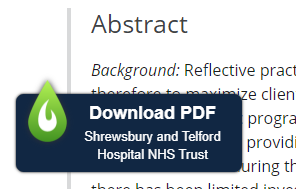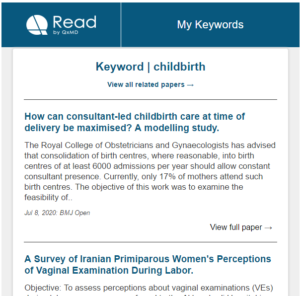 Read by QxMD is an app and website that allows you to discover and read relevant new healthcare journal articles. It does this by enabling you to specify journals, collections, keywords or topics to follow, and suggests relevant new articles that match your criteria. This way, you can build your own personalised alerting service.
Read by QxMD is an app and website that allows you to discover and read relevant new healthcare journal articles. It does this by enabling you to specify journals, collections, keywords or topics to follow, and suggests relevant new articles that match your criteria. This way, you can build your own personalised alerting service.
It's free to create an account, and you can link your account to the journal holdings of Shrewsbury and Telford Hospital NHS Trust, Shropshire Community Health NHS Trust, Staffordshire University or Keele University to make downloading PDF copies of articles easier.
On the mobile version, you can store your OpenAthens account so that when you view a paper, the app will attempt to download the PDF version if we subscribe to the journal or if it is available, an open access copy. If you find an interesting paper and it’s not available as a PDF, we can still order a copy for you - you just need to complete an article request form available on our website.
You can add papers to your own virtual collections, recommend papers, and discuss articles.
Read by QxMD covers a wide range of healthcare journals, so you’ll see more than just the ones we subscribe to.
We also suggest that you also sign up to KnowledgeShare If you want to keep up to date with new guidance, reports, UpToDate Practice Changing Updates, and other high-level evidence as these materials are not all covered by Read by QxMD.





